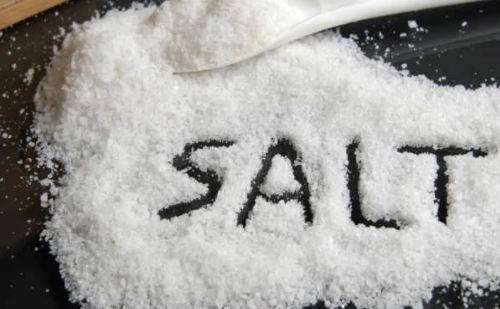Lifestyle
The shocking connection between daily salt use and kidney health

High salt intake has long been associated with various health issues, such as high blood pressure, heart failure, and kidney disease.
However, a recent study published in the Journal of the American Medical Association (JAMA) has uncovered a more specific concern – the self-reported frequency of adding salt to meals and its significant association with the risk of chronic kidney disease (CKD).
What does the study say?
Led by Dr Lu Qi, a Professor of Epidemiology at Tulane University, and his team, the study utilised data from the UK Biobank, a comprehensive biomedical database with information from over 465,000 participants. The research, conducted between 2006 and 2010, focused on individuals with an average age of 56 who did not have chronic kidney disease when enrolled. Qi’s team aimed to explore the unique relationship between self-reported salt intake and the development of chronic kidney disease, setting their study apart from previous research that often included individuals with multiple health issues, making it challenging to isolate the impact of sodium consumption on kidney health.
What are the risk factors?
Participants were asked to self-report how often they added salt to their food, with response options ranging from “never or rarely” to “always.” The study’s findings unveiled a concerning correlation between salt intake at mealtimes and an increased risk of chronic kidney disease. What made this study distinctive was its ability to maintain statistical significance even after adjusting for major confounding factors like high blood pressure and diabetes. The data showed that the more frequently individuals added salt to their food, the higher their risk of developing chronic kidney disease. Even after meticulous statistical adjustments, the association remained significant. Participants were categorised into three groups based on their self-reported salt usage, with those who reported adding salt “always” demonstrating a striking 29% increase in the risk of chronic kidney disease. The risk percentages decreased but remained notable for the “usually” and “sometimes” groups.
Salt intake and kidney disease risk
To put it into perspective, participants who reported using salt “always” had a 29% higher risk of developing chronic kidney disease compared to those who reported using salt “never or rarely.” This percentage decreased to 12% for the “usually” group and 7% for the “sometimes” group. Even after controlling for various confounding factors, including high blood pressure, infectious disease, age, and sex, the “always” group still demonstrated an increased risk of 6%, followed by the “usually” group at 5%, and the “sometimes” group at 2%. Excess salt intake might still be indicative of other unhealthy lifestyle factors contributing to chronic kidney disease risk.
Is salt bad for you?
Sodium, one of the predominant minerals in salt, plays a crucial role in muscle contraction, fluid retention, and nerve impulses. However, the study highlights the potential risks associated with excessive salt intake. The US Food and Drug Administration (FDA) recommends consuming less than 2,300 milligrams of sodium per day for adults.
How to cut down on salt in your diet
Reducing salt intake doesn’t mean completely eliminating it from your diet. Rather, it involves making informed choices about the sources of salt and adopting healthier eating habits. This reduction can be further enhanced by transitioning to a more plant-based diet and opting for fresh food choices. Checking food labels for sodium content is another practical step individuals can take to gain perspective on their salt intake. The research underscores the importance of lowering daily salt consumption, as supported by clinical trials showing that reduced salt intake may decrease the risks of hypertension and cardiovascular diseases.










